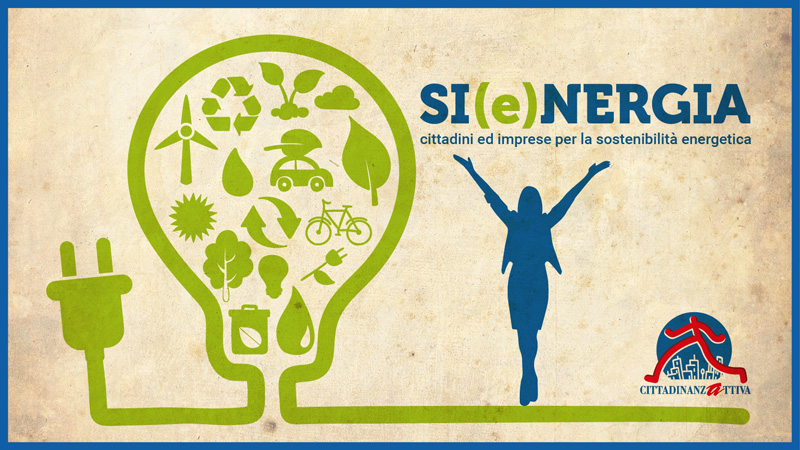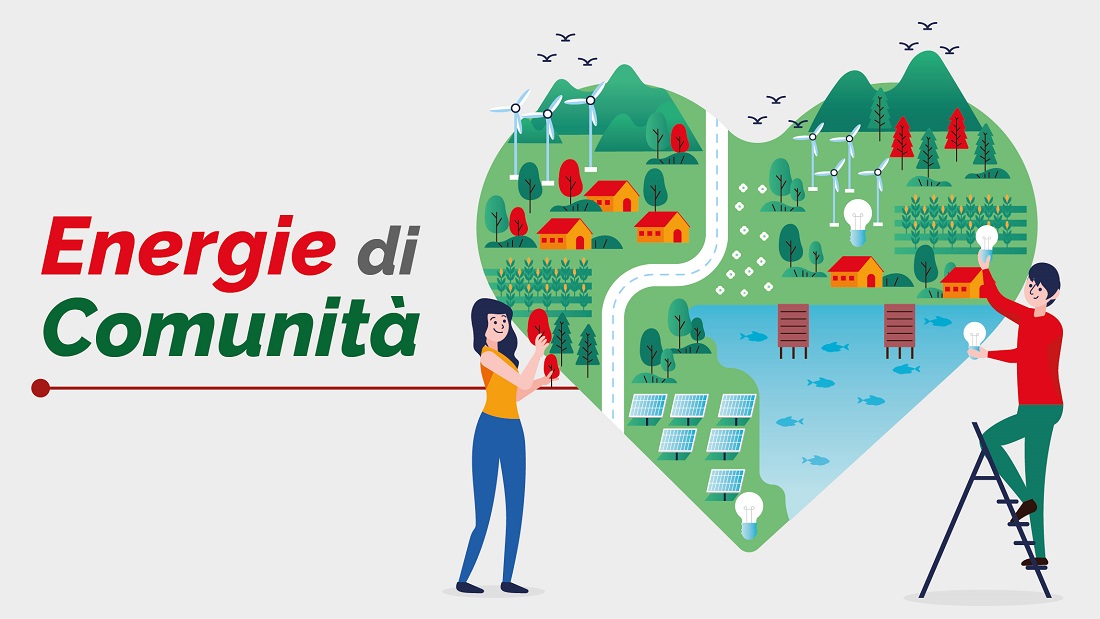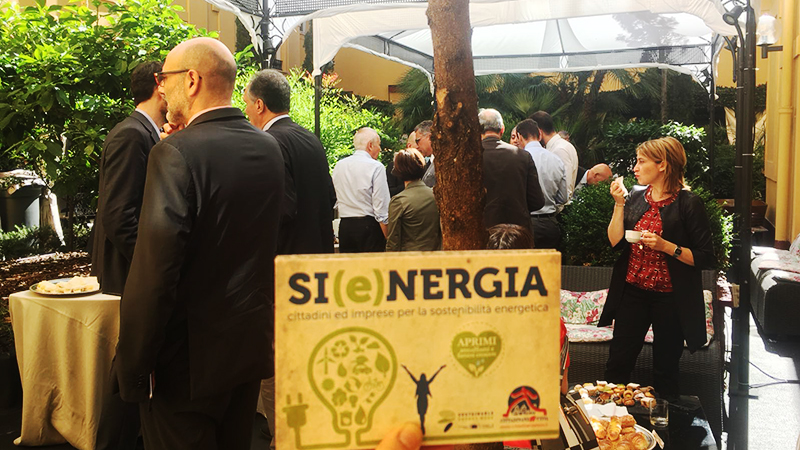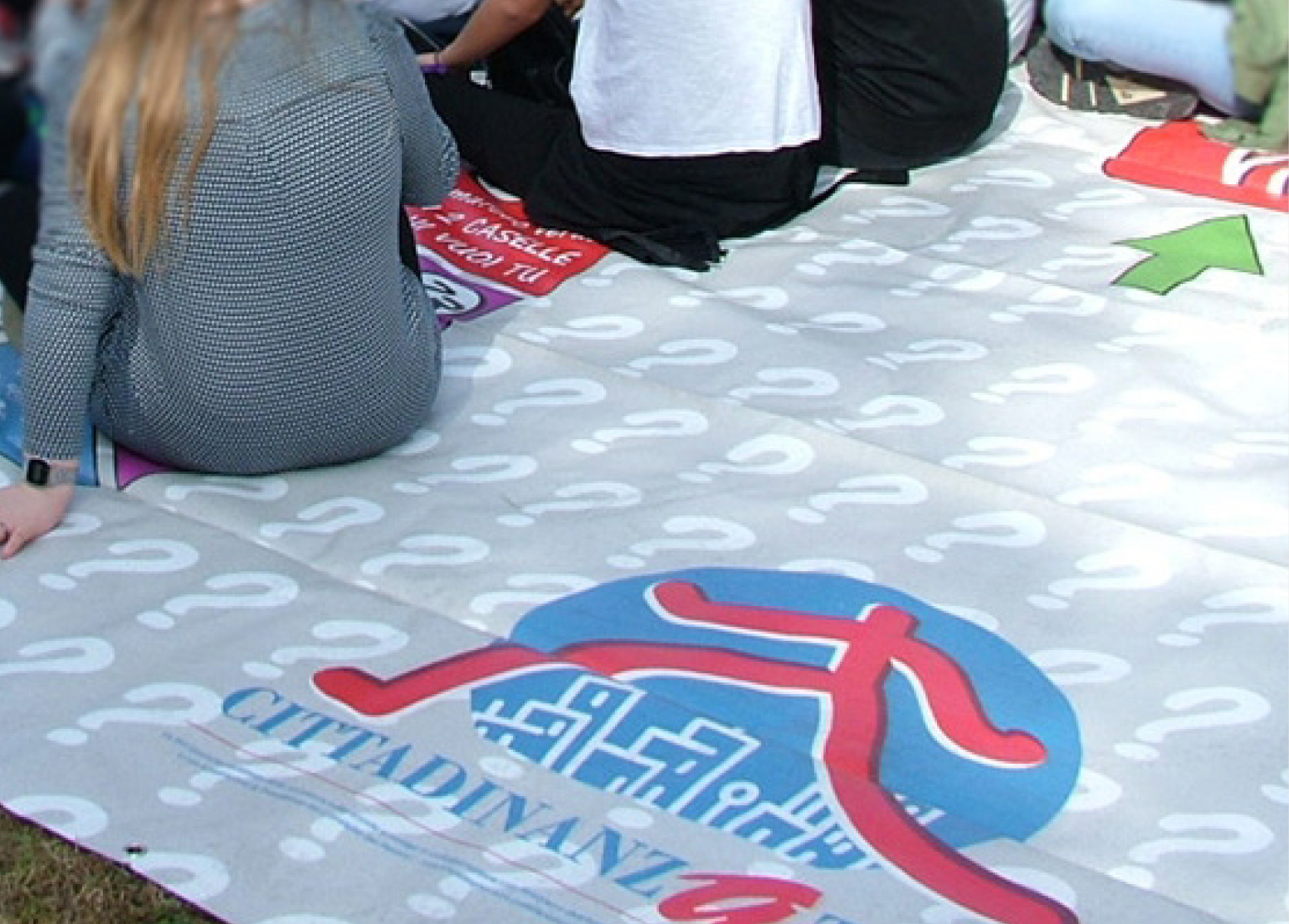
Citizens are aware of what energy efficiency is, but not of all the tools and individual choices that would favor a sustainable use of energy, given, for example, that one citizen out of two ignores the deductions provided; and, in the face of ever-pressing savings needs, three out of four ask for understandable bills and above all based on actual consumption. However, ecological awareness is growing, considering that almost one citizen out of two would be willing to spend more on an energy offer entirely or largely renewable.
These are some of the results that emerge from the civic consultation promoted by Cittadinanzattiva within the project "SI (e) NERGIA: citizens and businesses for energy sustainability" * and presented today in Rome.
"Not only energy sources, but also consumer behavior and choices should be more renewable” "based on correct information and increasing awareness, to ultimately contribute to the achievement of Objective 7 of the Agenda 2030 of the UN, aimed at "ensuring access to economic, reliable, sustainable and modern energy systems for all" declares Antonio Gaudioso, Secretary General of Cittadinanzattiva. "To this end, the role played by all market players remains crucial, from the political class that defines their rules, to the Authority responsible for implementing them, to operators who not only have to respect these rules but also offer a virtuous and competitive competition. with full respect for consumers ".
Energy sustainability: sectors and actors
According to the citizens interviewed (2,430), in Italy energy sustainability primarily concerns the increasing diffusion of energy from renewable sources (63.3%) and the efficient use of energy (62.8%); followed by the availability of innovative energy offers (49.5%), the reliability and correctness of suppliers (48.2%) and therefore the economic accessibility to the supply (44%). Suppliers, who believe, as well as citizens, that the political class plays a key role in the pursuit of energy sustainability (76.7%) agree on the same priorities. For companies, a key role is also played by individual citizens, who, on the other hand, are much less confident about the possibility of being able to have a concrete impact on their behavior in terms of energy efficiency (only 28% believe they have a big impact). In addition, only 45% think that, with their consumer choices, it can encourage the spread of virtuous behavior among companies by actually rewarding the most reliable and responsible ones.
Economic accessibility: bills and bonuses, these strangers
According to the interviewees, the economic accessibility to the supply of energy presupposes clear and easily understandable bills (74.1%), concessions / discounts for the weaker sections of the population (74.7%) and above all the regular availability of calculated bills based on actual consumption, to avoid adjustments and maxi bills (76.8%).
The main problems are found in the regular availability of energy bills calculated on the basis of actual and non-estimated consumption (45.5%), in the insufficient clarity and comprehensibility of the bills (43.1%), as well as in the lack of offers customizable (41.3%).
That the bill is still an obstacle is also evidenced by the fact that almost half of the sample interviewed (46.8%) admit to reading it in full but not having a clear understanding of the composition of the items and the relative amounts.
Likewise, the percentage (47.5%) of those who are not aware of the Energy Bonus (electricity and gas) is still significant. And even among those who are aware of it, it is underlined that the measures to better publicize the Bonus (63.5%) and the amounts destined to applicants (49%) are still inadequate.
Reliability of the supplier
According to the interviewees the critical factors, on which the reliability of the supplier is at stake, are precisely the formulation of clear and transparent offers (54.6% of the sample is convinced), aggressive and / or incorrect practices in the acquisition of new customers (45.5%), a Customer Service not always able to respond quickly (36.8%). Indications that confirm what is already the domain of companies, aware, as found by the investigation, of how aggressive and / or incorrect practices and the formulation of clear offers are at the top of customer attentions.
Switching: The Authority's "Find Offers"? Nobody (or almost) is looking for him ..
In fact, we are facing a sample of citizens who are still not very inclined to switch, given that 59.5% have never changed the electricity and / or gas supplier. Among those who have changed suppliers, they claimed to have oriented themselves by finding information via radio / tv / web advertising (21.4%), non-institutional websites for comparing offers (17.4%), commercial promoters (16 , 5%).
Innovation: what is it about?
It is an area where the point of view of citizens and what companies believe to be the prevailing orientation of users diverges, and not a little. In fact, for citizens, innovative energy services are all those products and solutions for energy efficiency (53.7% of respondents think so: we are therefore talking about boilers, air conditioners, LED lamps, installation of photovoltaic systems, etc.) as well as a varied series of additional services (53.4%: for example, it goes from insurance on plants to maintenance of boilers, passing through more general energy consultancy). In third place, if we want a little surprise, there are the offers for electric mobility with 49% of the consents.
On the other hand, companies set themselves first innovative ways of contacting the supplier (e.g. dedicated chat, social networks, etc.), followed by applications to make their homes smart (e.g. remote control of appliances, heating, etc. ) and the aforementioned range of additional services.
Efficient behavior and "renewable" choices
How much can individual citizens affect energy efficiency with their behavior? Companies believe it would affect a lot, citizens believe it would less, the 42.6% believe that their behaviors can affect enough. In confirmation of this, 46% say they have limited themselves mostly to the installation of LED lamps and the purchase of low-consumption appliances. Interesting data is that over 50% of citizens ignore the deductions provided for energy efficiency. On the other hand, an ecological awareness would seem to make room at least among those who declare themselves interested in knowing the origin of the energy used (67.8%) and signing an offer for the supply of energy produced exclusively or mostly from renewables, even if it were not the cheapest (45.6%).
* The project is carried out with the support of Acea, Edison, Enel, Eni gas e luce, Sorgenia.
Mediapartner: Canaleenergia, Quotidiano Energia, The Lifebuoy.
(document translated by Giulia Decarolis, ACN staff)










